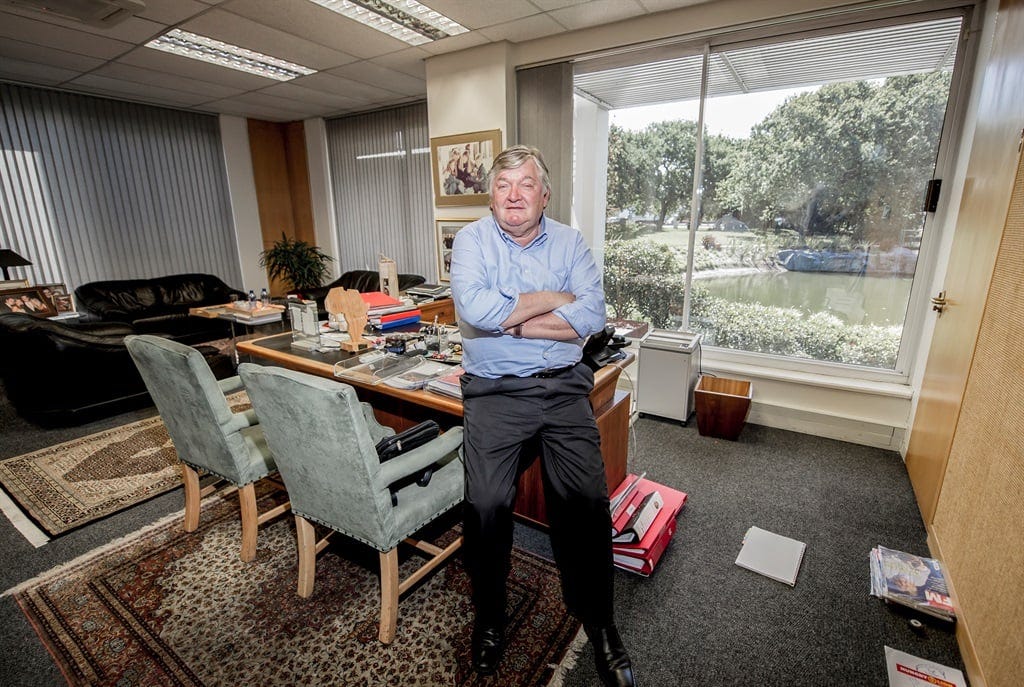James Wellwood “Whitey” Basson: A Chronological Biography
1946 – 1970
James Wellwood Basson was born on 8 January 1946 on Captain Jack Basson’s farm near Porterville in the Western Cape. Because “Wellwood” proved a tongue-twister for local schoolchildren, he was simply called “Whitey.” After matriculating at Rondebosch Boys’ High School he planned to study medicine at the University of Cape Town, but soon pivoted to commerce and enrolled for a BCom at Stellenbosch University. In Wilgenhof men’s residence, he met Christo Wiese, the friend and future business partner whose career would remain closely linked to his own.
Qualifying as a chartered accountant in 1970, Basson returned to Cape Town to join Brink, Roos & Du Toit (later PwC). Within two years Pep Stores—then an audit client—recruited him as financial director.
1972 – 1978
From 1972 to late 1978 Basson progressed from financial director to head of operations at Pep Stores, overseeing every aspect of the retailer’s expansion. He developed a taste for turnarounds, integrating the Half Price Group into Pep and refining operational systems. Founder Renier van Rooyen became his mentor, “teaching me the art of retailing and how it works,” and even took him to Italy to study fast-moving consumer-goods businesses.
1979 – 1985
In 1979 Basson obtained Pep’s approval to find or create a food-retail venture. That same year, with van Rooyen’s support, he and Wiese answered a call about a struggling Western Cape grocer with eight stores: Shoprite. The purchase echoed Wiese’s life-changing acquisition of the Ochta diamond farm. Basson set Shoprite’s sights on middle- and lower-income shoppers and bolted on six old Ackermans food stores, seeding a steady push northward. Still under Pepkor, Shoprite operated autonomously and was listed on the JSE in 1986.
1986 – 1993
Shoprite’s model was “to grow very big, very quickly.” Four years after listing, Basson bought the 27-store Grand Bazaars chain in the Western Cape; the following year he secured Checkers from Sanlam after an initial bid failed. Checkers’ 169 stores and 16,500 employees were loss-making—annual losses almost matched Shoprite’s turnover—but Basson restored profitability within months.
1994 to 1996
In 1994 Basson began moving north, opening stores elsewhere in Africa. The first supermarket opened in Lusaka, Zambia; the venture soon spread to Ghana and Nigeria. Thanks to this ambitious expansion Shoprite eventually became Africa’s largest retail food chain. Basson’s explanation for the breakthrough was brief: ‘Our culture how we do things.
1997
His boldest rescue came in 1997 when he bought OK Bazaars from South African Breweries for the symbolic price of R1. The deal brought almost 300 grocery and furniture outlets losing about R200 million a year. More than 150 stores were modernised and split into two focused banners—OK and OK Furniture—lifting market share above 30 per cent. As Wiese later quipped, “We paid a rand, but what people omit to mention: we scored R1 billion in assets.”
1998 – 2016
Basson’s instinct for risk did not extend to Markus Jooste: “We didn’t have a relationship, and wouldn’t have hit it off,” he recalled, adding that he “couldn’t understand what [Steinhoff] were investing in”—insight that spared him the scandal.
After nearly forty-five years—virtually all of them devoted to Shoprite—Basson announced his resignation in October 2016. The eight-store chain worth roughly R1 million in 1979 had become a global retailer employing more than 150,000 people with a JSE market capitalisation of more than R150 billion.





